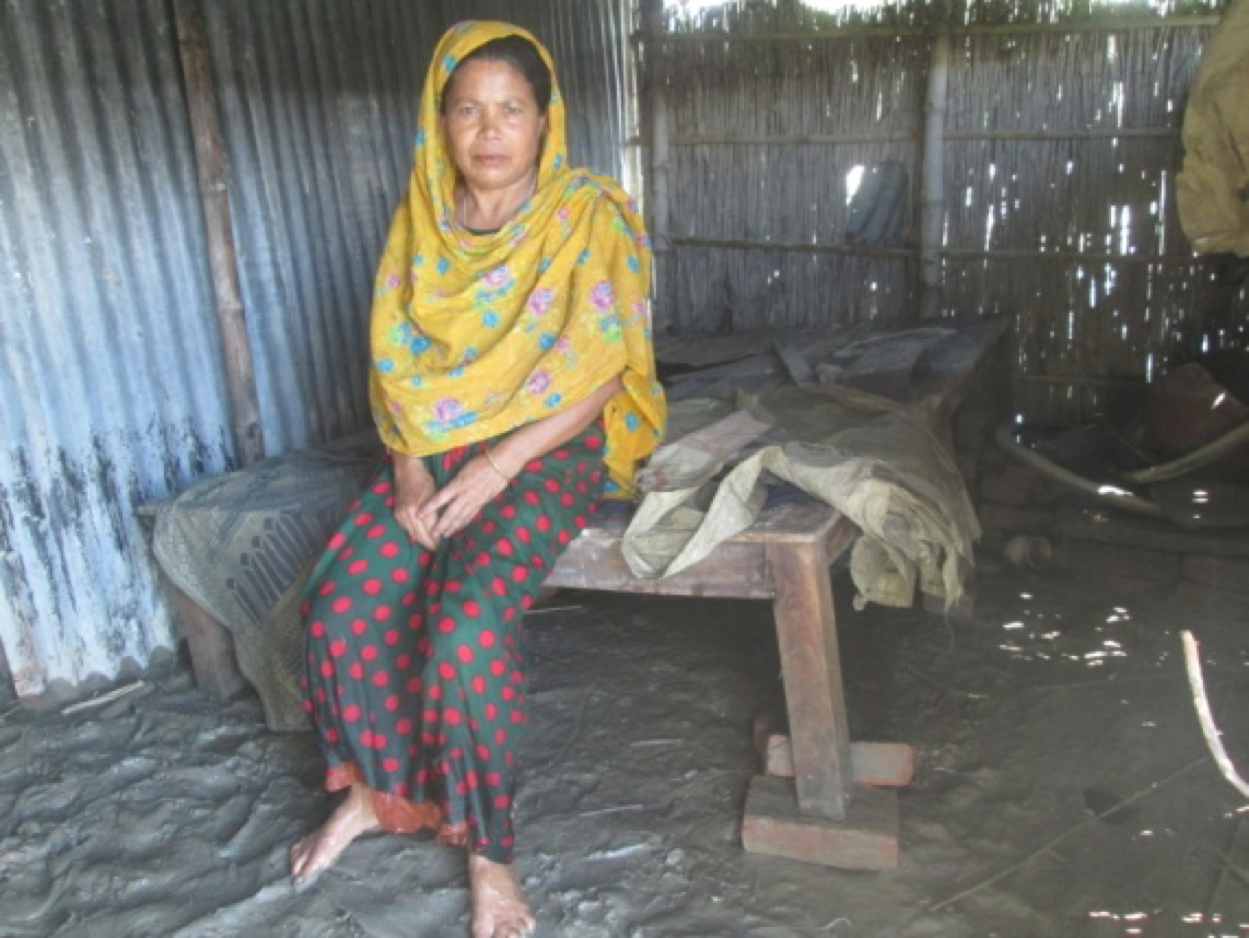Fazila and her family from Dewangonj in Jamalpur District in north west Bangladesh lost everything in the recent floods in early August.
They are not alone. Dewangonj was particularly badly affected by the floods which claimed the lives of 140 people and destroyed more than 600,000 homes
“I have never seen such floods and water in my whole life,” Fazila said. “The whole family had to leave the house and take shelter in the nearest primary school. 15 days have passed and we are still there.”
“Our food supplies are about to finish and we have no clean drinking water,” she added.

Her husband is a rickshaw puller and sometimes works as a farm labourer.
“Both those activities are impossible now,” explained Fazila. “There are no roads for the rickshaws and no land for farming. I used to work as a maid in different houses but people have had to abandon their homes.
“We have to share a toilet now between many families and it is not at all environmentally sound.”
Islamic Relief is providing food packs for 900 families in Dewangonj, as part of a larger programme helping 12,000 people in the three worst-affected districts – Jamalpur, Kurigram and Gaibhanda.
These include five kilos of flattened rice, two kilos of sugar and ten packets of energy biscuits, as well as ten packets of saline solution.
“Thankfully this will last my family three-four days,” she said. “Then Almighty Allah will keep us well.
“There are so many other families like us who are facing severe food shortages and lack of clean drinking water. I hope you are able to help them too.”
Islamic Relief has established two water treatment plants in Jamalpur district which are providing 20 litres of clean water a day for 3,000 people. We have also supplied essential household items, such as buckets and soap for 250 families.
We are also looking to provide cash grants to more than 6,000 families so they can use the money to buy whatever they need to support their families in the short-term and to start to earn a living again.










